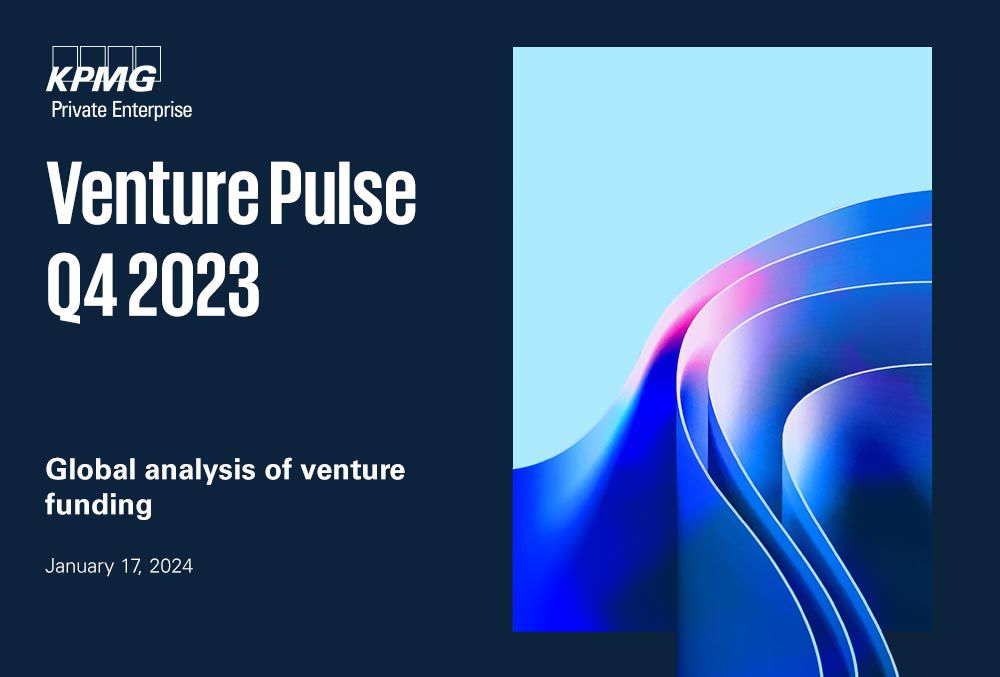2023 was a particularly difficult year for VC investment globally given the significant economic challenges, geopolitical tensions and conflicts, and ongoing concerns related to the valuations of VC-backed companies. Both annual global VC investment and the total number of VC deals globally fell to levels not seen since 2019 as VC investors continued to show an abundance of caution with respect to their dealmaking activities.
Down rounds coming out of the shadows
Over the course of 2023, startups in many regions of the world worked hard to avoid down rounds — such as by undertaking significant cost-cutting measures, conducting inside rounds, or by obtaining bridge financing in order to extend their financial runway. Much of this activity occurred under the radar as companies focused on raising add-ons to existing rounds. During Q4’23, this trend shifted somewhat, with more companies announcing actual down rounds at lower valuations. This trend will likely continue until the exit market properly reopens. In addition to down rounds, Q4’23 also saw more companies shutting down — a trend that will also continue as companies fail to attract fresh investment.
Startups adjusting growth plans to focus on profitability
Over the course of 2023, economic conditions and increasing pressure from investors had startups adjusting their growth plans and turning their attention to strengthening their paths to profitability. In Q4’23, VC investors continued to pressure companies within their portfolios to become more efficient and to adjust their business plans to focus more intensely on achieving profitability.
There has also been increasing recognition over the last few quarters that some startups simply cannot survive in the current environment. Many sectors that saw rapid acceleration under pandemic conditions have been decimated by the rapid shift in economic conditions, including high levels of inflation and rapidly rising interest rates that have not yet begun to come down. Companies focused on last mile delivery and buy-now-pay-later offerings have been particularly hard hit. Already, some companies, including unicorns, have disappeared — with more likely to become extinct as they fail to attract new funding.
Interest in AI soars; energy and ESG remain attractive to VC investors in Europe
AI attracted strong investment in Europe during Q4’23, accounting for a number of the largest deals of the quarter, including a $486 million raise by Germany-based large language model focused company Aleph Alpha, a $434 million raise by Mistral AI in France and a $208 million raise by Israel-based enterprise AI systems company, AI21 Labs.
In addition to AI, the energy and ESG space continued to see good momentum during Q4’23, with investments ranging from Seed deals to those with larger ticket sizes — such as Sweden-based battery manufacturer Northvolt’s $145 million raise and Estonia-based energy storage company Skeleton Technologies’ s $114 million raise. Given the commitment to net zero targets and the need to rapidly scale funding in order to address the energy transition, the sector is likely to remain on the radar of investors for the foreseeable future.
VC investment in Nordics remains quiet amid pullback in later stage deals
VC investment in the Nordics region continued to be subdued in Q4’23. While early-stage funding remained relatively stable, funding for later stage deals remained very dry, with Sweden-based battery manufacturer Northvolt’s $145 million raise accounting for the largest deal of the quarter. Cleantech and biotech attracted some of the largest tickets in the Nordics during the quarter; in addition to Northvolt, Sweden-based green heating company Aira raised $90 million, while Denmark-based NMD Pharma — a developer of novel treatments for neuromuscular diseases — raised over $79 million. The strength of the health and life sciences ecosystem, particularly in Denmark, has likely contributed to the sector’s resilience among VC investors.
Trends to watch for in Q1’24
Given the current headwinds, including the ongoing conflicts in Europe and the Middle East, the continued lack of exit opportunities for VC-backed companies, and uncertainties related to a number of elections planned or anticipated to occur in 2024, VC investment in the region is expected to remain relatively soft heading into Q1’24. VC investors will likely continue to focus on ensuring companies have a strong path to profitability so that they are better positioned to return capital to their LPs. While more companies will likely fail in Q1’24, this will likely drive attention to quality companies able to contribute to a heathy ecosystem long-term.
Collaboration is expected to be top of mind for many participants in the VC market in 2024, particularly between CVCs existing VCs, and accelerator programs looking to make headway on their strategic objectives while also managing their costs more effectively. The number of joint CVC funds could also rise as large CVCs look to bolster their ability to invest capital by working in tandem with others.
Investment remains cool in Europe — with $13.8 billion invested on 1,750 deals
Down rounds tick up to highest levels since pandemic
First-time financing volume returns to pre-boom levels
Capital remains concentrated on mid-sized funds
AI, Ecommerce and Fintech dominate top 10 deals
Contact us and read more insights here
Simon Vinberg Andersen
Partner, Audit
KPMG in Denmark
Jonas Schou Larsen
PR & Communication Lead
KPMG in Denmark



